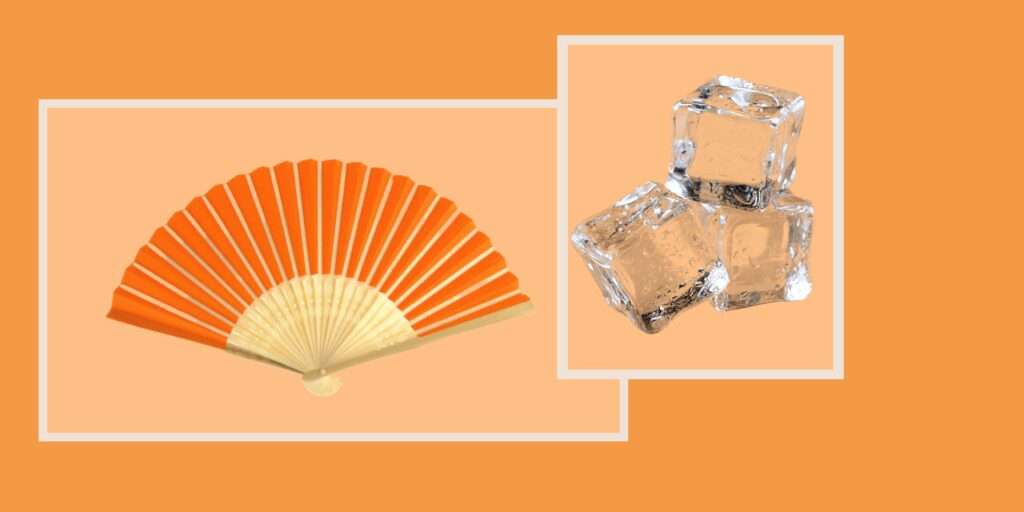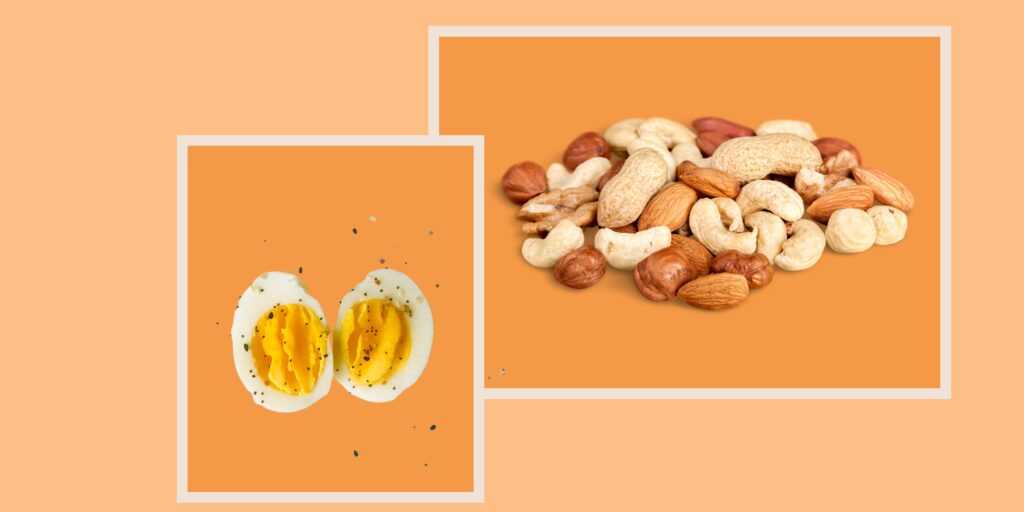10 ways to Tame Hot Flashes
Up to 85% of menopausal women report hot flashes and night sweats. Here’s how to deal with them with a few lifestyle changes:

Waking up in a pool of sweat and overheating multiple times a week can be incredibly disruptive and debilitating. Usually when we go into sleep-mode, your body temperature drops and releases melatonin to help you sleep better. This happens in sync with your circadian sleep rhythm. During perimenopause and menopause, changes in your hormone levels can cause your hypothalamus (the area of your brain that regulates body temperature) to glitch. As warmth flushes your face, chest and neck, your body tries to cool itself by sweating.
Top 10 tips to reduce hot flashes and night sweats
- Dress in layers: Wear lightweight, breathable clothing made from natural fibers such as cotton, bamboo and linen. I particularly like Cariloha line of bamboo pajamas and t-shirts (bonus tip: there is a Cariloha store in Grand Cayman). Another tip is to dress in layers, so you can peel back items and adjust your clothing as a hot flash hits.
- Use a fan or icepack: Keep a small portable fan or gel icepack with you to provide immediate relief when a hot flash strikes – especially if you’re out and about or at your desk. You can use it to create airflow or direct it towards your face or body to help cool down. Make it a fashion statement with a funky fan, beaded neck ice pack, or cooling wristband. Don’t have anything to hand? Simply run your wrists under a cold tap to help cool your body down.

- Manage stress: Stress can trigger hot flashes or make them worse. Practice stress-reduction techniques such as deep breathing exercises, meditation, yoga, or engaging in activities you find relaxing to help manage stress levels.
- Stay hydrated: Drink plenty of cool water throughout the day to stay hydrated and keep your body temperature lowered. Avoid or limit drinking beverages that can trigger hot flashes, such as alcohol (especially red wine), caffeine, and eating spicy foods.
- Identify triggers: Since every woman’s menopause journey is unique, it’s important to pay attention to factors that may trigger or worsen your hot flashes. Write them down in a journal and see if you can identify any common triggers such as hot beverages, spicy foods, alcohol, caffeine, stress, and tight clothing. By identifying your triggers, you can then make adjustments to avoid or reduce the frequency of your hot flashes.

- Practice relaxation techniques: Deep breathing exercises, progressive muscle relaxation, and guided imagery can help you relax and manage hot flashes when they occur. In a study published in Menopause Journal, researchers found that deep-paced breathing twice a day seemed to be helpful in reducing hot flashes.
- Regular exercise: Although it seems strange to say – go get sweaty to reduce your sweats, engaging in regular physical activity, such as walking, swimming, or yoga can help regulate your hormone levels, reduce stress, and potentially decrease the frequency and intensity of hot flashes. How does that work? Exercise can improve your body’s thermoregulation by changing the sensitivity for the onset of sweating. In fact, in a recent study women saw a 60% reduction in the frequency of hot flashes thanks to moderate 45 minute exercise sessions four times per week.
- Consider alternative therapies: Some women find relief from hot flashes through alternative therapies such as acupuncture, hypnosis, or herbal remedies. Always consult with your healthcare professional first to explore these options and determine what might be suitable for you.

- Hormone replacement therapy (HRT): In severe cases where hot flashes significantly affect quality of life, hormone replacement therapy may be an option. Discuss the potential risks and benefits of HRT with your healthcare provider to determine if it’s appropriate for you.
Remember, what works for one woman may not work for another. It’s important to experiment with different strategies and find what works for your. If hot flashes are significantly interfering with your daily life or sleep, or if you have concerns about your symptoms, it’s best to consult with a healthcare professional for personalized advice.
And now for Tip number 10…
Nutrition For Hot Flashes
Phytoestrogens: Phytoestrogens are plant compounds that mimic the effects of estrogen in the body. Some studies suggest that foods rich in phytoestrogens, such as soy products, flaxseeds, and legumes, may help reduce the frequency and severity of hot flashes in some women. For a quick and easy way to include phytoestrogens into your diet – try this recipe.
Vitamin E: Some studies have explored the potential benefits of vitamin E supplementation in managing hot flashes. While the results have been mixed, certain trials have shown a modest reduction in hot flash frequency and severity with vitamin E supplementation. My motto is always FOOD FIRST. Aim to include Vitamin E-rich foods into your diet, including nuts, seeds, vegetable oils, and green leafy vegetables.
Omega-3 fatty acids: Omega-3 fatty acids, found in fatty fish (like salmon and sardines), flaxseeds, chia seeds, and walnuts, have been associated with various health benefits. We can’t get enough of these powerful foods bursting with healthy goodness! Although the research specifically focused on the effects of omega-3 fatty acids on hot flashes is limited, their anti-inflammatory and heart health properties may potentially have a positive impact on hot flash symptoms (and are good for you anyway!). Aim for 2 portions of fatty fish per week and sprinkle in the seeds and nuts as snacks, on breakfasts and salads. If you’re vegetarian or vegan, you may need to opt for a good quality Omega-3 supplement, such as Now.

Vitamin D: Over a third of the world’s population is considered to have lower levels of vitamin D. Part in thanks to poor diet choices, and part owing to sun-protective measures such as sunscreen. Now baking ourselves in the sun with a piece of tinfoil is not making a health comeback, but there are ways to incorporate Vitamin D into your diet through fortified dairy products, egg yolks, and those fatty fish we just spoke about. Why is it important for menopause? Some studies have suggested a link between low vitamin D levels and increased frequency of hot flashes.
It’s important to note that the research on nutrition and hot flashes is still evolving, and individual responses may vary. Always consult with a healthcare professional or a registered dietitian who can provide personalized advice based on your specific needs and health status.